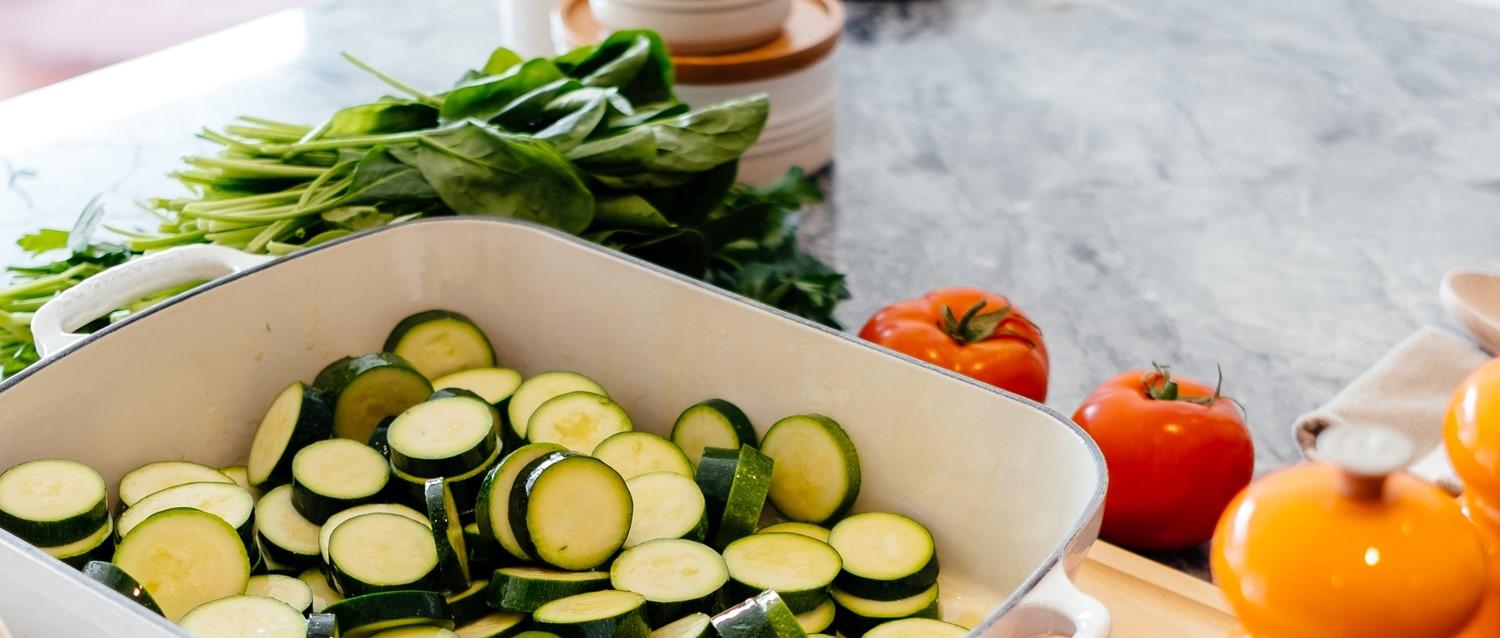
Can you lower cholesterol through diet alone?
Peer reviewed by Dr Sarah Jarvis MBE, FRCGPLast updated by Milly EvansLast updated 18 Dec 2019
Meets Patient’s editorial guidelines
- DownloadDownload
- Share
- Language
- Discussion
By now, the health risks of high cholesterol are well documented. But do you need to change every aspect of your lifestyle to protect yourself against heart disease and stroke or can diet alone tame your cholesterol levels?
In this article:
You are what you eat - and what you drink, how much exercise you do and your genetics.
"Cholesterol levels are affected by a number of factors, some you can't do anything about - for example, family history, age, ethnicity and gender - and some you can," says Lynne Garton, Dietetic Advisor for HEART UK. "An unhealthy diet high in saturated fat, being overweight, drinking too much alcohol and not being physically active can all contribute to raised 'bad' cholesterol."
Continue reading below
What is 'bad' cholesterol?
Whilst cholesterol is seen as the enemy of a healthy diet, we actually need the fatty substance to stay healthy. "It's needed to make cell membranes, various hormones, certain vitamins and bile salts which are important for the digestion of fat," explains Garton.
The problem comes when there are high levels of cholesterol in the blood, increasing the risk of heart disease, stroke and vascular dementia. The risk increases the longer the higher cholesterol is left untreated.
There are actually two main types of cholesterol involved: low-density lipoprotein (LDL) and high-density lipoprotein (HDL).
"LDL is the main carrier of cholesterol in the blood and is often called 'bad' cholesterol because too much LDL cholesterol can build up in your arteries and cause narrowing," says Garton. "HDL is often called 'good' as it picks up excess cholesterol from the arteries and takes it back to the liver where it can be removed from the circulation. As well as LDL cholesterol, other non-HDL cholesterol is considered 'bad' as it can also contribute to fatty build-up in the arteries.
"The ideal situation is to have low non-HDL cholesterol. It's also important that your HDL cholesterol does not drop too low."
Can you lower cholesterol through diet alone?
Back to contentsA combination of diet and lifestyle changes are key to reducing cholesterol. For some, dietary changes alone can have a big impact.
"The degree to which cholesterol is lowered depends on a number of factors such as the quality of the baseline diet, the number and magnitude of dietary changes made and how long these changes are maintained," says Garton. "For some people this might be enough, but for others extra help from medication might be needed."
For those with very high cholesterol, older people and people with diabetes or high blood pressure, statins and other cholesterol-lowering medications are available to complement lifestyle and dietary changes. Your doctor can discuss with you whether these will be appropriate.
Continue reading below
Changes to your diet
Back to contentsTo see significant changes in cholesterol levels, it's important to take a whole-diet approach.
"It's about eating more of certain foods and less of others," says Garton. "Dietary advice has shifted away from focusing on nutrients and individual foods to lower cholesterol and instead promotes an overall healthy dietary pattern."
One of the more recent diets proven to lower cholesterol is the Ultimate Cholesterol Lowering Plan (UCLP) from HEART UK. The plan is based on eating a balanced heart-healthy diet and adding in foods which actively lower cholesterol.
Small swaps and careful additions can transform your diet. Gradually changing what you eat rather than reforming it overnight makes it more likely that you'll stick to it long-term.
To achieve a balanced diet Garton suggests:
Cutting down on foods high in saturated fat and replacing these with foods rich in healthy unsaturated fats, including vegetable and nut oils (excluding palm and coconut oils), spreads made from vegetable oils, oily fish, avocado, nuts and seeds.
Eating plenty of plant-based foods such as fruit, vegetables, pulses, wholegrains, nuts and seeds.
Including two portions of fish a week, one of which should be oily (mackerel, sardines, salmon etc).
The UCLP recommends that once you've created your balanced base diet, you add foods from each of four key groups with additional cholesterol-lowering effects.
Plant stanols and sterols
"Sterols and stanols are plant compounds which have a similar size and shape to cholesterol. They work by blocking the absorption of cholesterol in the gut, so reducing the amount of cholesterol getting into the bloodstream," explains Garton.
Tiny amounts of sterols and stanols can be found in a range of plant-based foods but eating fortified foods like milk, yoghurt drinks and spreads can help you to eat enough.
"Eating 1.5 to 2.4 g of plant sterol or stanols daily can reduce blood cholesterol by between 7 and 10% over the course of two to three weeks," says Garton. It's important to note that they need to be eaten on a regular basis and as part of a meal because they only work by mixing with the food you have eaten.
Oats and barley
Whole grains are key to a balanced diet. But oats and barley are particularly effective in the fight against high cholesterol.
"These whole grains contain a particular type of fibre called beta-glucan which has been shown to lower cholesterol," explains Barton.
"Beta glucan works by forming a gel which binds to cholesterol and bile (which is made from cholesterol) in the intestines. This helps limit the amount of cholesterol that is absorbed from the gut into your blood. Your liver has to take more cholesterol out of your blood to make more bile, which also lowers your blood cholesterol."
Eating 3 g of beta-glucan a day over three to twelve weeks can reduce LDL-cholesterol by around 7%. To achieve this, Barton suggests:
Eating a bowl of porridge oats.
Opting for bread made with some oat flour.
Sprinkling oat bran in soup.
Including pearl barley in casseroles.
Choosing oat cakes as a snack.
Nuts
It only takes a handful of nuts a day (approximately 28-30 g) to reduce LDL cholesterol by around 7%, according to Barton. And that's not the only benefit of eating nuts.
"As well as a cholesterol-lowering effect, eating this amount of nuts a day has been associated with a significant reduction in heart disease and improved vascular function," she says. "They are rich in unsaturated fat, fibre, plant proteins, vitamin E, natural plant sterols, and minerals like magnesium and potassium."
And the good thing is that all nuts count, so if you have a particular favourite, go for it!
"Choose unsalted nuts and if possible, opt for nuts with their skins still intact and unroasted (rather than roasted) varieties as these contain additional nutrients," suggests Barton.
Soya foods
Eating 25 g of soya protein every day also helps to lower cholesterol. Soya protein can be found in products like tofu, soya mince, edamame beans, soya nuts and soya alternatives to dairy.
"Many soya foods are naturally low in saturated fat," explains Barton. "Using these foods to replace foods high in saturated fat, as part of a heart-healthy diet, can help to manage cholesterol. Soya protein may also help to influence the way the body regulates cholesterol."
Patient picks for High cholesterol

Heart health and blood vessels
Do light beers have any health benefits?
With conflicting stories about the effects drinking beer has on cholesterol levels, we take a look at how safe it is to drink, what type to choose – and whether it might even have some hidden health benefits.
by Danny Chadburn

Heart health and blood vessels
Does your wedding menu cater for low cholesterol diets?
Gluten-free, dairy-intolerant, peanut allergies - you always need to think about your guests' dietary requirements when organising the food for a special event, so why not include some options for those who may be watching their blood pressure and following a low-cholesterol diet at your wedding?
by Danny Chadburn
Continue reading below
Article history
The information on this page is peer reviewed by qualified clinicians.
18 Dec 2019 | Latest version
18 Dec 2019 | Originally published

Ask, share, connect.
Browse discussions, ask questions, and share experiences across hundreds of health topics.

Feeling unwell?
Assess your symptoms online for free
Sign up to the Patient newsletter
Your weekly dose of clear, trustworthy health advice - written to help you feel informed, confident and in control.
By subscribing you accept our Privacy Policy. You can unsubscribe at any time. We never sell your data.